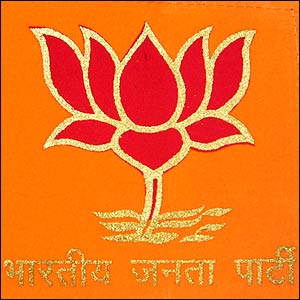Talha Aquil
 Last summer, the distinguished Indian politician Jaswant Singh was expelled from his party for the crime of writing a book. Leaders of the opposition Bharatiya Janata Party (BJP) said Mr Singh’s book on Mohammed Ali Jinnah, the founder of Pakistan, was simply too “painful” because of its take on the history of Partition and the perceived sympathy towards Jinnah.
Last summer, the distinguished Indian politician Jaswant Singh was expelled from his party for the crime of writing a book. Leaders of the opposition Bharatiya Janata Party (BJP) said Mr Singh’s book on Mohammed Ali Jinnah, the founder of Pakistan, was simply too “painful” because of its take on the history of Partition and the perceived sympathy towards Jinnah.The BJP has always put its view of Indian history front and centre, but the party has been in disarray after two consecutive losses in national elections and bitter internal squabbling. With the recent selection of Nitin Gadkari as the youngest leader in the party’s history, it is trying to regain its electoral strength by changing its image – and arguably the core of its political identity.
@body arnhem:The BJP came into national government on the back of the destruction of the Babri Masjid in Ayodhya in 1992 and the communal riots which followed. But, like Mr Singh, senior leaders have not always followed the Hindu nationalist line and have been strongly criticised by its ideological base based on what they believe is historical fact. The former party leader, Lal Krishna Advani, was severely weakened and almost forced to resign after he referred to Jinnah as a secular individual.
Communal politics has always been important to the BJP’s view of the world. But identity is an ideological rallying point that throws a wrench into the ability of any party to effectively govern India since modern politics is built on coalitions involving minority parties at the state and national levels.
There have been attempts to build support within minority populations. BJP strategists have consistently pointed out that 56 years of Congress rule have brought no significant gains for Muslims in India. In recent statements, Mr Gadkari has tried to build bridges with Muslim communities by making conciliatory statements and allusions to a common heritage.
The other major lesson learnt by the BJP has been that far-reaching growth and development have become very important in Indian politics. Many in the BJP remember how their message of “India Shining” contributed to their downfall at the polls in 2004. This message was considered to be an elitist view of the country which ignored the dismal conditions faced by the majority of Indians who live in poverty.
The success of Congress in winning rural voters by promising more equitable development has changed how political parties are seen by Indians. Rural development and poverty alleviation have returned to the forefront of Indian politics after a period when more attention was paid to the growing middle class and technology sector. It is also a testament to the development of Indian democracy that the poor and the politically disempowered have been able to shift the national discourse to issues of their own survival.
Among Mr Gadkari’s first statements after winning the party presidency was that his top priority would be socio-political reforms that aided poor people and addressed the epidemic of farmer suicides. It was a clear appeal meant to expand BJP support in the rural hinterlands.
The main thrust of the current strategy has been to campaign as a centre-right rather than communal political party. By a more moderate approach and abandoning some of its more controversial positions, the BJP is trying to to appeal to not only the electorate but prospective coalition partners.
The problem will be convincing its opponents that it’s more than a façade on top of a still hardline communal party that promotes violence. The first BJP national government, despite coming to power because of the Ayodhya incident, appeared to govern as a centre-right party. Opponents argue that the government still tried to change the educational curriculum to reflect the historical beliefs of the party and its ideological foundations.
More recently, the handling of riots in Gujarat also reflect not-so-hidden undercurrents in the party. A little-known aspect of those riots was that tribal and lower caste groups, who have been traditionally uninvolved in communal riots, found themselves as part of the mob. Opponents allege that the radicalisation of these groups was a direct consequence of the BJP’s appeal to divisive communal politics.
Biased versions of history are a problem throughout the subcontinent. The recent execution of the assassins of Bangladesh’s founder, Pakistan’s struggle to balance the religious and secular, and the BJP’s attempt to rebrand itself all trace back to interpretations of history. Even as India keeps moving forward, the past seems to overshadow the present, especially the BJP.
Talha Aquil has worked as a financial services consultant and a political risk analyst specialising in South Asia